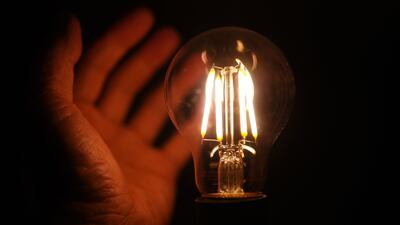Efforts to boost energy efficiency have picked up pace this year across the globe as governments and consumers responded to elevated energy prices and fuel supply disruption, but they fell short of the required level needed to meet climate change targets, the International Energy Agency (IEA) said.
Global investment in energy efficiency — such as building renovations, public transport and electric car infrastructure — rose to $560 billion in 2022, a 16 per cent rise on an annual basis, according to the IEA’s latest market report.
"The oil shocks of the 1970s led to a massive push by governments on energy efficiency, resulting in substantial improvements in the energy efficiency of cars, appliances and buildings,” said Fatih Birol, IEA's executive director.
“Amid today’s energy crisis, we are seeing signs that energy efficiency is once again being prioritised," he said. "Energy efficiency is essential for dealing with today’s crisis, with its huge potential to help tackle the challenges of energy affordability, energy security and climate change.”
The global energy crisis, made worse by Russia’s war in the Ukraine, has trigged concerns over energy security and the inflationary effect of elevated energy prices on economies and livelihoods around the world.
Preliminary data by the IEA indicates that this year the global economy has used energy 2 per cent more efficiently than it did in 2021, a rate of improvement almost four times that of the past two years and almost double the rate of the past five.
However, this falls below the energy efficiency rates needed to meet climate change goals.
Efficiency improvements need to average about 4 per cent a year this decade to align with the IEA's scenario for net-zero emissions by 2050.
The Paris-based agency has called on governments to prioritise efforts to improve energy efficiency in buildings and transport, as goals to reduce carbon emissions and curb rising temperatures cannot be met by focusing only on investment in renewable energy.
There are encouraging signs of progress, the IEA said.
The electrification of transport and heating has picked up pace, with one in every eight cars sold globally now electric, and almost 3 million heat pumps sold this year in Europe alone — up from 1.5 million in 2019 — as they become an increasingly cost-effective heating source, according to the agency.
Existing building codes are also being strengthened and new rules are being introduced in emerging and developing economies, while a rising wave of energy-saving awareness campaigns is helping millions of citizens better manage their use of domestic power, it said.
All governments in South-east Asia, for example, are now developing policies for efficient cooling, vital for a region with one of the fastest rates of growth in electricity demand, it added.


